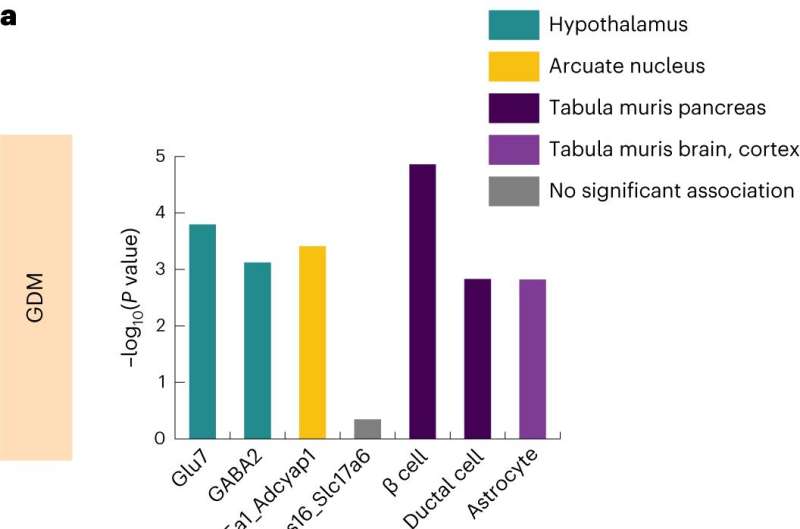This article has been reviewed according to Science X's editorial process and policies. Editors have highlighted the following attributes while ensuring the content's credibility:
fact-checked
peer-reviewed publication
trusted source
proofread
A leap forward in women's health: Unlocking genetic clues to gestational diabetes

A new study led by researchers from the University of Helsinki, along with colleagues at the Massachusetts General Hospital and Broad Institute of Harvard and MIT, provides significant breakthroughs in our understanding of the genetics behind gestational diabetes.
Gestational diabetes is a common pregnancy disorder annually affecting more than 16 million pregnancies worldwide, with substantial health implications for both mothers and their children. It is characterized by elevated blood sugar levels in pregnant women who did not have diabetes before becoming pregnant.
Despite the fact that gestational diabetes constitutes a major global health problem, there is remarkably little research into its molecular causes.
The study now published is the largest genome-wide association study of gestational diabetes conducted to date, including more than 12,000 patients and 131,000 female controls from the Finnish genomics initiative FinnGen.
This groundbreaking research, published in Nature Genetics, has nearly tripled the number of known genetic areas associated with gestational diabetes, identifying a total of 13 distinct chromosomal regions linked to the condition.
Using recently developed analysis methods, the researchers were able to show that there are two distinct classes of genetic variants related to gestational diabetes: Those that are shared with type 2 diabetes and those that are predominantly associated with the gestational form of diabetes only.
"Our results suggest that gestational diabetes has a unique genetic basis that is partially separate from type 2 diabetes, challenging previous assumptions about the shared genetic underpinnings of the two conditions," says Dr. Elisabeth Widén from the Institute for Molecular Medicine Finland (FIMM), University of Helsinki, who led the study.
The study's results also provide important insights into potential physiological mechanisms related to the development of diabetes during pregnancy. These mechanisms involve adaptive changes in the brain, as well as altered insulin sensitivity in the mother. The hypothalamus emerged as one key focus, with some of the risk genes identified active in brain cell types known to be important for adaptive responses to maintain blood sugar regulation during pregnancy.
"Biobank-based studies such as FinnGen, with deep and lifelong clinical data, facilitate large-scale studies of many women's and reproductive health phenotypes in which research funding has been badly lacking," said Dr. Mark Daly, former director of FIMM and a geneticist at the Massachusetts General Hospital and Broad Institute who jointly supervised the study. "It is exciting to see this work bearing fruit in important and understudied diseases."
Although the study primarily focused on a Finnish population, the findings have broader implications. The majority of the risk variants are common, highlighting the potential relevance of these discoveries to diverse populations at risk for gestational diabetes.
Putting the spotlight on a very common pregnancy disorder that has remained understudied for years, the work is of high relevance for women's health in general. Also, the results enhance the overall understanding of dysregulation of glucose metabolism more broadly.
"By providing novel data on critical genetic factors and pathways, our study has the potential to transform attitudes and approaches not only towards gestational diabetes research but towards research targeting pregnancy-related health outcomes overall, ultimately benefitting the health of mothers and their newborns," Dr. Widén concludes.
More information: Amanda Elliott et al, Distinct and shared genetic architectures of gestational diabetes mellitus and type 2 diabetes, Nature Genetics (2024). DOI: 10.1038/s41588-023-01607-4



















